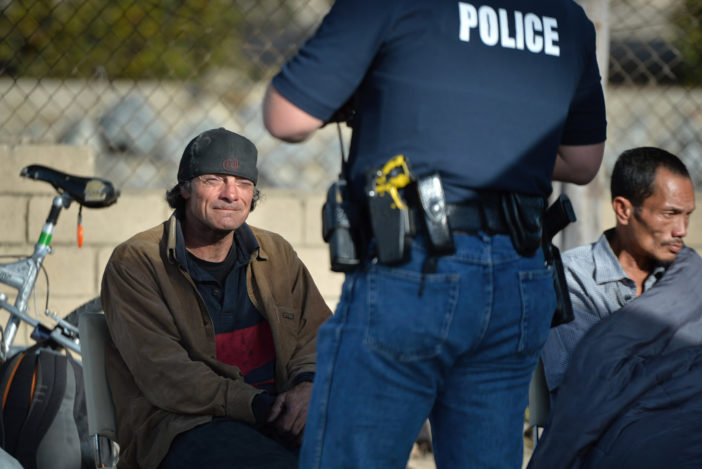Across the state, communities have been dealing with issues related to homelessness. Police departments often have been at the forefront of leading these efforts.
Departments are allocating more resources to homelessness than I have ever seen in my three decades of policing.
But that doesn’t mean there still aren’t a lot of critics out there.
I recently heard a homeless advocate complain that police officers were criminalizing the homeless in their city.
I don’t think there is a police officer out there who views homelessness as a crime. That is a misstatement of what the real problem is. The problem is homeless behavior.
If you’re breaking the law, police officers are pretty much obligated to be the bad guys and take action.
Let’s face it: The guy face down passed out in a public place, the thief, or the person who just escalated panhandling to the level of a robbery has to be dealt with.
I can guarantee you the last ones who want to deal with them is the police.
What most of the public doesn’t know is arresting a homeless person is a lot of work and to be avoided by most police officers at all costs. It can take the better part of a day for a police officer to arrest one homeless person.
Take, for example, the homeless person who is now passed out in a public park due to alcohol or drugs.
First step is getting them in a police unit. If you’re lucky, they have not defecated or urinated over themselves.
Step two: Secure and account for their property. This can vary from a single bag to several shopping carts. All of this property will have to be inventoried and booked into safe keeping. Depending on how much they have accumulated, it can be an hours-long process.
Step three: Get them medically cleared. This can entail another few hours waiting in the local receiving emergency room while a doctor makes an assessment if the arrestee is in any shape to be sent to the local jail.
It’s a well-known fact jails do not want anyone suffering from chronic health problems or communicable diseases. The jail also doesn’t want to deal with a prisoner who unless they have another drink or their drug of choice in the next few hours will be going through some serious shakes.
If the officers are lucky, they haven’t been exposed to tuberculosis, scabies, hepatitis, HIV or my favorite: lice. But that’s something you probably won’t know right away. A few weeks later you get a letter from the Department of Health informing you of your recent exposure and suggesting you contact your personal physician for follow-up.
After all this work, the better part of a police officer’s shift has been filled up.
I think it’s commendable that police departments across the state have been working collaboratively with mental health professionals, non-profits and faith communities in reaching out and trying to deliver services.
The police have a necessary role in being a consequence and providing an incentive to accept services being offered.
The question few are willing to address is what percentage of those who fit the category of homeless are receptive to the services being offered to help them improve their condition?
Ask any police officer, mental health worker or outreach worker and I’m sure you’ll get the same response:
Not many.
Police officers fill a necessary role in establishing the boundaries of acceptable behavior. When that behavior rises to the level of being criminal, society demands the police take action.
Critics should not, however, be complaining when these boundaries are being enforced. The public expects it and a society of laws demands it.
Joe is a retired Anaheim Police Department captain. You can reach him at jvargas@behindthebadgeoc.com
 Behind the Badge
Behind the Badge



